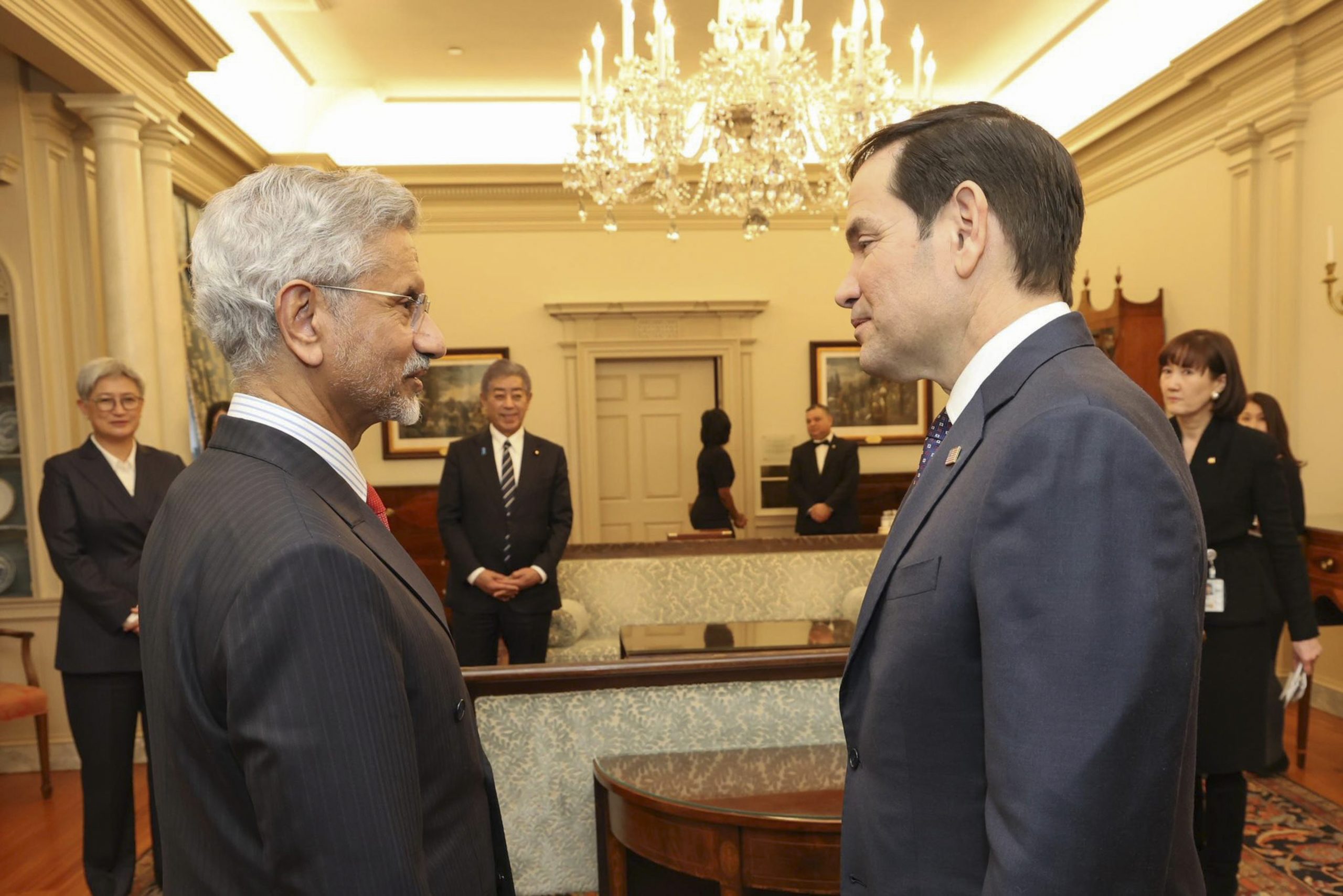- Thursday, May 01, 2025
The US secretary of state “reaffirmed the United States’ commitment to cooperation with India against terrorism, and Pakistan to work with India to de-escalate tensions

By: shajil kumar
AMID escalation of tension between India and Pakistan, US secretary of state Marco Rubio spoke separately with external affairs minister Subrahmanyam Jaishankar and Pakistan prime minister Shehbaz Sharif on Wednesday (30).
The US urged India and Pakistan to “de-escalate tensions”, and reaffirmed its commitment to cooperate with Delhi against terrorism and urged Islamabad’s cooperation in investigating the “unconscionable” Pahalgam terror attack on April 22.
In his call with Jaishankar, Rubio expressed his sorrow for the lives lost in the Pahalgam terrorist attack that had killed 26 civilians, mostly tourists.
Rubio “reaffirmed the United States’ commitment to cooperation with India against terrorism. He also encouraged India to work with Pakistan to de-escalate tensions and maintain peace and security in South Asia,” a statement issued by State Department Spokesperson Tammy Bruce said.
In his conversation with Sharif, Rubio spoke of the need to condemn the Pahalgam terror attack and urged Pakistani officials’ cooperation in investigating it.
He also encouraged Pakistan to work with India to de-escalate tensions, re-establish direct communications, and maintain peace and security in South Asia.
Rubio and Sharif “reaffirmed their continued commitment to holding terrorists accountable for their heinous acts of violence.”
The Pakistan prime minister’s Office stated that Sharif briefed Rubio about his country’s perspective regarding recent developments in South Asia following the Pahalgam terror attack.
Sharif highlighted Pakistan’s “significant contributions” in the global fight against terrorism and claimed that the country has “sacrificed over 90,000 lives and suffered economic losses exceeding $152 billion,” the release said.
The prime minister claimed that “Indian provocations” serve to distract from Pakistan’s ongoing efforts to combat terrorism, particularly groups operating from Afghan soil.
Sharif also rejected India’s attempt to link Pakistan to the Pahalgam attack and reiterated Pakistan’s call for an impartial investigation.
He also urged the US to press India to refrain from making “inflammatory statements”.
Sharif also brought up the Indus Waters Treaty, which he said is the lifeline for 240 million people, and claimed that it contains no provisions for unilateral withdrawal by any party.
Following the Pahalgam attack, India downgraded diplomatic ties with Pakistan and announced a raft of measures, including suspension of the Indus Water Treaty of 1960 and immediate shutting down of the Attari land-transit post.
The Resistance Front, a proxy of the banned Pakistan-based Lashkar-e-Taiba, claimed responsibility for the attack.
Qatar, Saudi Arabia and Kuwait on Wednesday called upon India and Pakistan to exercise restraint and resolve the crisis through diplomatic channels.
Qatar’s foreign affairs ministry reiterated the nation’s “full support for all efforts aimed at de-escalating tensions” between India and Pakistan and addressing their outstanding issues through dialogue and peaceful means.
Saudi Arabia’s foreign affairs ministry said in a statement, “The Kingdom calls on both countries to de-escalate, avoid further escalation, and resolve disputes through diplomatic means.”
It urged India and Pakistan to uphold the principles of good neighbourliness, and strive for stability and peace for the welfare of their people and region.
Kuwait’s foreign affairs ministry said it is following with “great concern and interest” the tension between “the friendly” India and Pakistan.
“The ministry affirms Kuwait’s firm and unwavering position in supporting the diplomatic process and emphasising reason and dialogue in resolving all regional and international issues,” it said.
Pakistani troops engaged in unprovoked firing along the Line of Control and the International Border in multiple sectors across four border districts of Jammu and Kashmir, prompting Indian forces to ‘respond effectively’, officials said on Wednesday (30).
This marked the sixth consecutive night of ceasefire violations by Pakistan along the LoC, amidst heightened tensions between New Delhi and Islamabad.
India and Pakistan had agreed to a renewed ceasefire in February 2021 when the Directors General of Military Operations of both countries reaffirmed their commitment to the 2003 ceasefire agreement.
India shares a 3,323-km-long border with Pakistan, comprising the International Border (IB), approximately 2,400 km from Gujarat to Akhnoor in Jammu; the 740-km-long LoC from Jammu to Leh; and the 110-km Actual Ground Position Line (AGPL) in the Siachen region. (PTI)